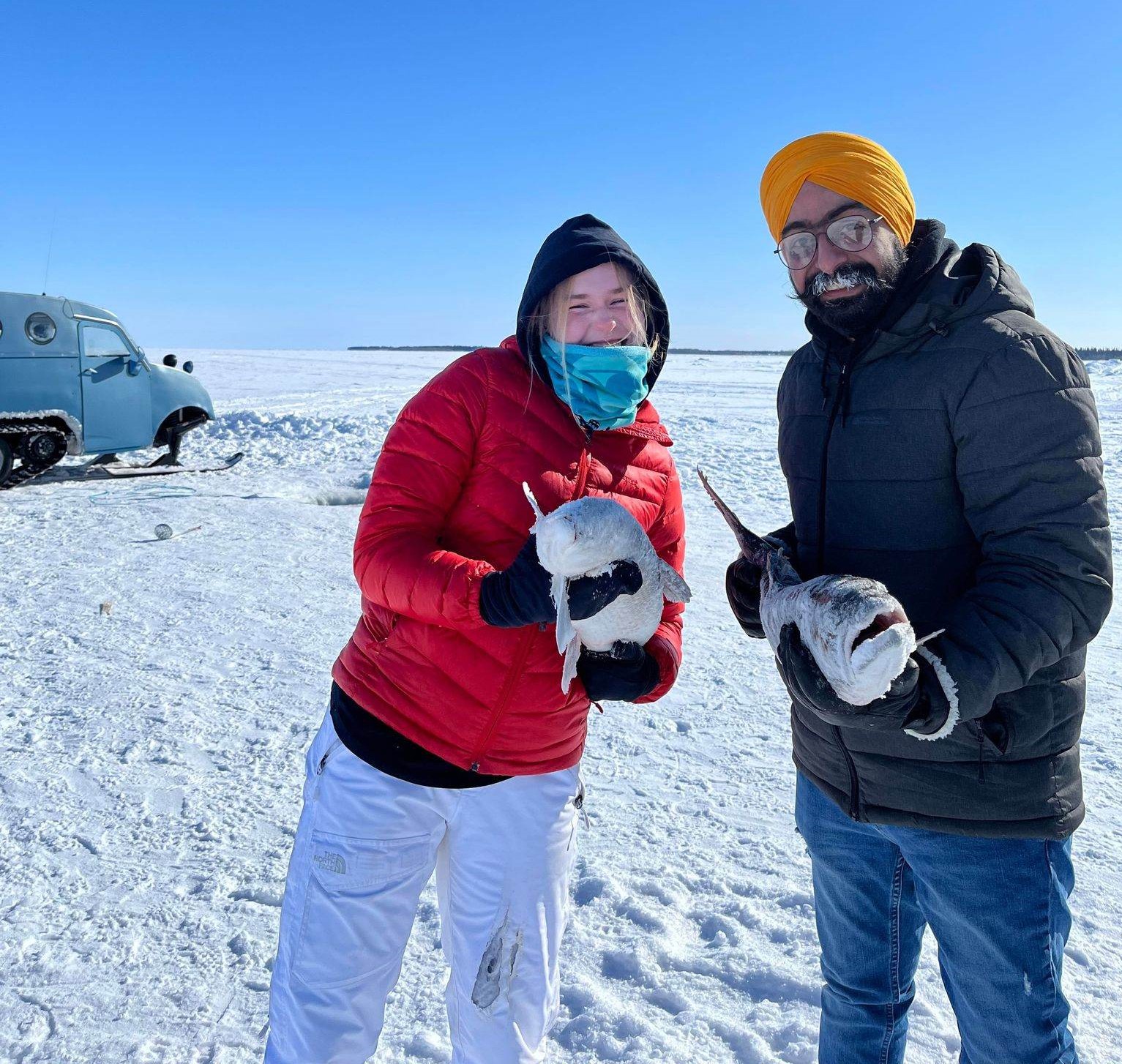Supporting students’ education in the Northwest Territories
Story

More familiar with the bustling city life of Toronto, Margot Ferguson is becoming accustomed to the quiet in Hay River, Northwest Territories. The Northern community offers a different landscape, different sociology, even a different winter.
“It’s been very different, but it’s been really wonderful,” said Margot. “The community is really nice and the people have been so welcoming. I feel lucky for the connections I’ve made up here so far.”
Volunteering as part of Cuso International’s Canadian program, the 22-year-old works as an educational assistant at Diamond Jenness Secondary School, supporting teachers in math, communication technology, and English classes.
Margot works with students in small groups, as well as one on one. Sometimes, she works with the entire class, helping with assignments and bridging the gap between students and teachers.
Helping students meet challenges
Education challenges in the territories are nothing new. A number of students have fetal alcohol syndrome disorder, which results in learning difficulties. Lack of motivation among students is also a problem.
Over the past few years, Margot says the community has seen an increase in crime. Drug use and homelessness are also challenges, and the community continues to face the legacy of residential schooling.
Most recently, students have been struggling because of the COVID-19 pandemic. Schools in the community have seen low attendance rates and low rates of students submitting assignments.
Margot hopes to help identify deficits in the education system and make suggestions about how best to make a change.
“I just try to do my best within the school day to day. I work individually with different students and I try to understand their individual struggles and how best to work with them to succeed on a one-on-one basis,” she said.
Although many students have had an impact on Margot, one Grade 10 student stands out to her. With his curiosity and excitement to learn, Margot said she sees a lot of potential.
“Then I’ll bring it up and it’s met with him having already determined how far he’s able to go because of maybe family history and maybe the town around him,” she said. “I think about ‘how do I break that barrier, how do I let him see himself go a bit further.’”
Coming to terms with privilege
Margot knows her own privileged upbringing can prevent her from connecting with students as closely and she wants to. She is white and grew up in a secure, middle-class family in a city with a lot of opportunities. She went to McMaster University, where she got an Honours Bachelor of Integrated Sciences, a minor in anthropology and a minor in statistics.
“I think some students find it difficult to connect with me because they notice that I’ve had a different upbringing and I am privileged,” she said.
Volunteering with Cuso International has given Margot the opportunity to step out of her own world, be more open minded, and gain a new perspective on different ways of life.
A family tradition of volunteerism
Margot is not the first in her family to volunteer – a big factor in her decision to do so. Margot’s father, Mack, volunteered with Cuso International in 1984, doing mechanical work in Ghana.
“He loved Cuso, he loved his experience,” she said.
While in Ghana, Mack met his wife, Margot’s mother, who was volunteering with Peace Corp. Now, they are passing down the volunteering tradition to Margot for her to explore, grow as a person, and discover the possibilities that life has to offer.
“You start to discover things about yourself, which she certainly is,” said Mack. “Where your strengths and weaknesses fall, you start figuring those things out. At the same time, you grow dramatically.”
Before leaving for the Northwest Territories, her parents gave her plenty of advice. They encouraged her to make friends in the community, make the most of the local culture, soak everything in, and say yes to opportunities.
Since getting to Hay River in August 2022, Margot has followed through on that advice, learning a lot about the community that has welcomed her. When she returns to Ontario, she hopes to highlight the pressing need for helping professions and social programs in the region.
“I feel one part about being here I’ve really enjoyed is that I’ve been able to have an impact on people,” she said. “I think if people came up here, they would understand that the Northwest Territories is a wonderful place. It’s so beautiful. I think if more people came up here, there would be a bit better resource allocation in Canada.”